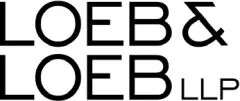- within Consumer Protection topic(s)
In trademark action between two guitar manufacturers that ended with jury verdict finding use of counterfeit mark and intentional infringement, district court enjoins sale of infringing products, orders disgorgement of profits and declines to award treble or statutory damages.
Plaintiff Gibson Inc. sued competing guitar manufacturer Armadillo Distribution Enterprises Inc., alleging that Armadillo marketed, advertised and sold counterfeit guitars that infringed seven of Gibson's registered marks, including four guitar body shapes, one design mark and two word marks. After an initial jury trial resulted in a verdict largely favoring Gibson, the Fifth Circuit reversed, finding that the district court's erroneous exclusion of certain evidence was relevant to the issue of Armadillo's genericness defense. (Read our summary of the Fifth Circuit's decision here.)
After remand and a seven-day trial, the jury returned a verdict that Armadillo intentionally infringed five marks and sold or marketed counterfeits of those five marks. The jury found no infringement with respect to two of the marks and determined that one mark should be canceled as generic. The jury found in favor of Armadillo's laches defense because Gibson delayed in asserting its trademark rights in the infringed marks. It also determined, however, that Armadillo had unclean hands in connection with its use of the infringed marks.
The district court instructed the jury that, if it found infringement with respect to any of the marks, the parties had agreed on the amount of profits Armadillo earned from sales of each of the infringing products. The jury nonetheless awarded $1 in damages. The jury did not complete the verdict questions regarding statutory damages or exemplary damages. The parties filed competing posttrial motions for entry of final judgment. The district court granted in part and denied in part each of the motions.
The district court granted Gibson's request to permanently enjoin Armadillo from manufacturing, advertising or selling products that infringe on the five marks. The four-factor test for issuing a permanent injunction favored Gibson because (1) the likelihood of confusion posed by Armadillo's sale of the competing products caused irreparable injury due to Gibson's loss of control of its reputation; (2) the harm to Gibson's goodwill and the lost control of its reputation could not be quantified or undone by money damages, which were therefore inadequate to compensate Gibson; (3) the balance of hardships favored Gibson because Armadillo was merely required to comply with the Lanham Act; and (4) the public interest would be served by requiring Armadillo to comply with the Lanham Act.
The district court awarded Gibson $168,399.22 in disgorgement of profits based on the profit numbers stipulated by the parties prior to trial. Under Section 1117(a) of the Lanham Act, a district court may, in its discretion, order the disgorgement of profits, even where the jury has reached a contrary conclusion. Despite the jury's damages award of $1, the district court, employing a balancing test, exercised its equitable discretion to disgorge profits because the jury determined Armadillo intentionally infringed on five of the marks, the parties stipulated the amount of profits Armadillo earned from sales of the infringing products, injunctive relief alone could not remedy Gibson's past injuries caused by the infringement, and the interests of the public are served by making trademark infringement unprofitable.
Although the district court had the discretion to award treble damages or statutory damages under Section 1117(c) of the Lanham Act because the jury found Armadillo had sold counterfeit goods, the district court declined to exercise that discretion. The disgorgement of profits already "place[d] Gibson in roughly the same position as it would have been had the infringement never occurred[,]" and "any additional monetary award when coupled with the injunction would become punitive." Further, "awarding statutory damages would be duplicative of the disgorgement award."
The district court deferred awarding statutorily recoverable costs under Federal Rule of Civil Procedure 54(d) or attorneys' fees under Section 1117(b) of the Lanham Act until after Gibson's submission of a bill of costs and a full briefing by the parties on the issue of attorneys' fees.
The content of this article is intended to provide a general guide to the subject matter. Specialist advice should be sought about your specific circumstances.



